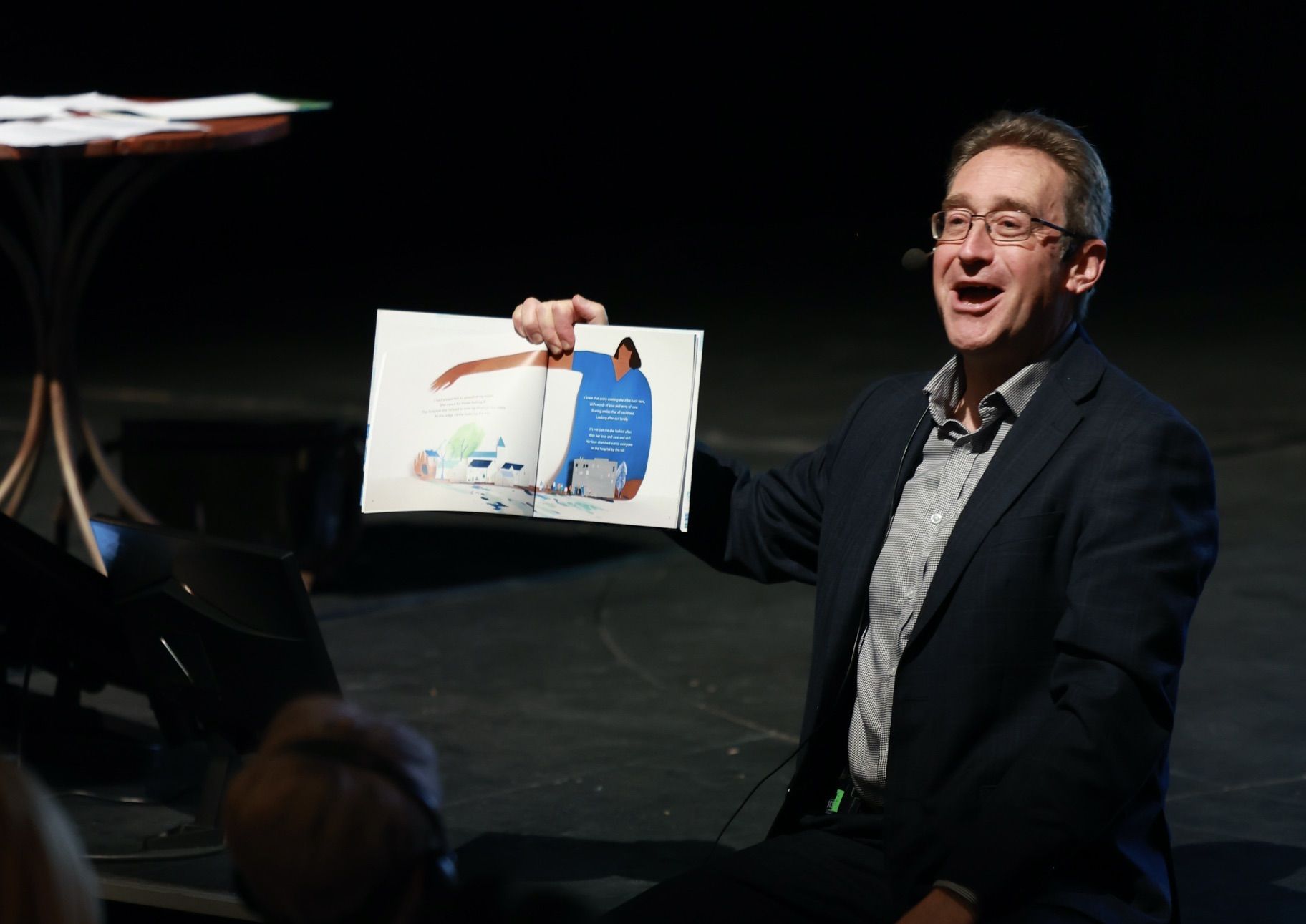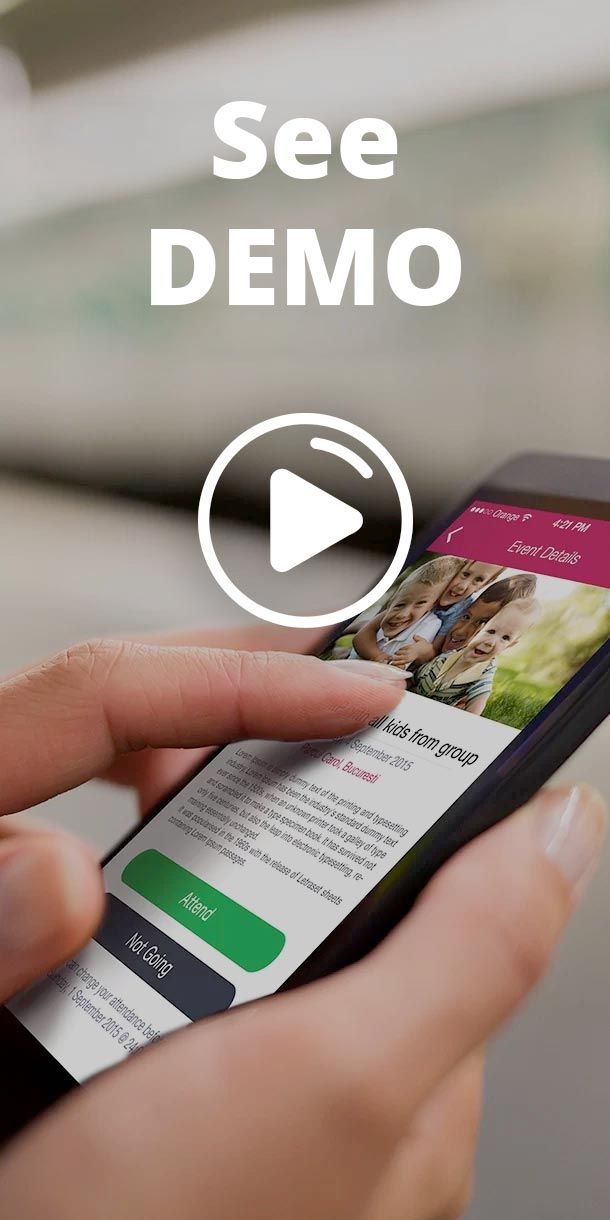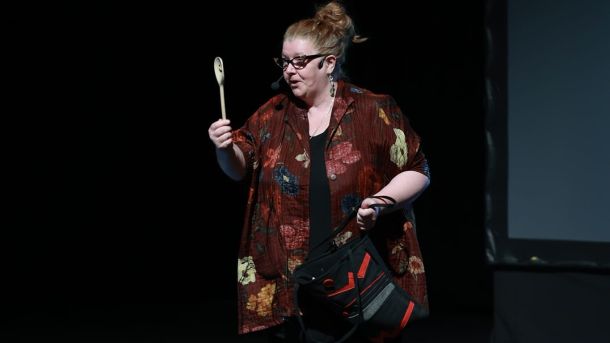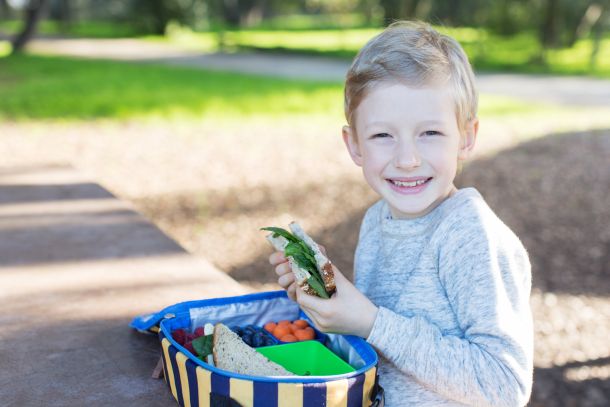
How to become confident with storytelling in early years education
Stories are vital for all of us. Storytelling in early years education means enactment of these stories to capture the children’s attention. This enables educators to transmit stories efficiently, with an impact, so that later in life chldren themselves become good readers and good speakers.
However, educators often shy away from incorporating storytelling into their classrooms due to a lack of confidence in their performance abilities. Chris Connaughton emphasized this point during his presentation "Storytelling for Empathy and Understanding - how stories develop oracy and literacy" at the First7 Early Years Education Conference.
As an actor well-versed in working with children, Chris advocated for embracing storytelling and offered practical guidance to educators, encouraging them to approach storytelling as a performance.
If parents don't bring stories into their home, it's vital that you, as educators, do that in your classrooms
How to become confident with storytelling in early years education?
1. Attitude is Key
The way a story is told can make all the difference. You can simply read a story from a book in 10 minutes without engaging the children, or you can immerse them in a captivating universe, making them forget they’re hungry, sleepy or that they could be playing someplace else.
Today's children don’t lack stories or their representations in their daily lives. They wear Marvel-branded backpacks, put on Barbie clothes or write with Paw Patrol-pointed pencils.
But they get bored of them quickly. They are rarely facilitated a connection to that universe (beyond the screens). So it’s precisely the performance of stories as a learning technique can be the hidden the hook to attract children into the storytelling universe, so that they become fascinating in the long term and useful in their development.
So a first step when you start to read or tell stories with confidence is creating an atmosphere by describing settings artistically, changing voice tones for characters, using facial expressions or speeding up the pace at key moments in the story to create anticipation. All of these can work wonders.
Once we instill the joy of storytelling into our kids and their parents, they’ll be waiting for that moment all day long.
2. Practice in front of the mirror
Actors are doing this, whether they're up for an Oscar or just making their debut, whether they're preparing for a stand-up show or a premiere on the world's biggest stage.
Sure, you didn't train for acting. But to the same extent that today's educators should facilitate experiences, when telling memorable stories they also becomes actors.
So prepare by telling the story over and over again in the mirror. Observe your facial expression, adjust it, and see what improvements you can make.
3. Repeat, repeat, and variate
Repeating the same story but presenting it differently each time is a fantastic confidence-building exercise. It keeps children engaged while allowing educators to test different approaches.
Also, repeating the same story helps you teach certain sounds or words, depending on your goals. You may be surprised that even children with a slower start in speech development catch on faster.
The good thing is that retelling a story several times, especially retelling someone else’s story, makes it easier for you to improvise. At some point, you’ll feel that it’s no longer your story.
4. Draw inspiration from anywhere
This is another practice often used by actors, to make the experience as authentic as possible for the audience.
So, take inspiration from what surrounds you to make the storytelling experience authentic and captivating. They’ll relate to the story, maybe they’ll even anticipate some things. It will certainly get them excited and perhaps even more prone to start exploring for themselves.
5. Improvise
Once familiar with a story, feel free to improvise to match your personality and the message you wish to convey.
For very young children, it’s the personal touches that makes the storytelling experience unique and engaging. It’s these details that create connection and impact, and also show that we have different experienes and we are unique.
At the same time, you will find something liberating in your own interpretation of the story: you will lend your voice to that story, and it will become easier and easier to respond to it as you wish, to move freely and bring the characters to life in a personal way.
Change the ending, for example, to be less violent or moralizing than in classic fairy tales. Or challenge the children to tell you who the bad character in Little Red Riding Hood is and think about what would happen if the wolf were a positive character.
Thus, you will be able to serve the children some more impactful lessons of empathy and connection, and trigger their creativity much more easily.
6. Don't fear AI
On their iPhones or tablets, Children today are constantly exposed to graphic elements far beyond anything you could offer them in a nursery or kindergarten classroom. They always get bored once the initial fascination evaporates.
Yet, nothing will ever replace the timeless fascination created by a living organism, emanating warmth and energy right in front of children, on whose face they can see the sweat running, whose eyes express wonder or anger.
Chris remembers that one girl told him that school is so much better than home, because it had books, and toys, and everyhting. Hence the importance that schools foster empathy, connection and creatifity.
AI or technology cannot enact, cannot take away the fact that your performance is the greatest graphics card in the world. AI can't create suspense like a living, breathing, sweating human being.
7. Learn from children's reactions
Children will adore you for the magical moments you build for them. Through stories, they learn empathy and understanding of everyday life, paving the way for their own storytelling skills.
If you want this experience continued at home, by the parents, bring them into this universe, teach them to tell stories. Maybe they don't know how to do it, maybe they don't have time. Invite them in the morning, before work, to stay for 30 minutes in the hall with the children, to see how the stories are told. The practice is also mentioned by educational consultant David Willows: it works in helping parents connect to the context and methods in which learning occurs today.
Ultimately, storytelling won't turn educators into award-winning actors, but it will create lasting emotional connections and impactful learning experiences for children.
This year's Early Education Conference centered on "Communication, language and writing". The presentations addressed age-appropriate methods to enhance language acquisition in children up to 5 years old, mainly through a lot of participatory games and interactive methods designed to arouse children's curiosity and interest.
Kinderpedia, the complete school and kindergarten management platform, supported the First7 Early Education Conference, just as we did in the past. Our mission is to offer children access to an innovative learning experiences, in sync with the technological challenges. We support educators with a digital platform equipped with intuitive functionalities, designed to simplify their work and address the needs essential in children's development, as well as in maintaining a close relationship with their parents.

Kinderpedia
The complete communication and management solution for schools and childcare centres.
Simplifies teachers' work and brings parents closer to their children's school progress.
Recommended articles
Want to improve your center quality? Kinderpedia is here to help! Not only do we provide thousands of informational content pieces like blog posts, podcasts, webinars and more, we are also makers of the #1 Rated and Reviewed Childcare Software.







